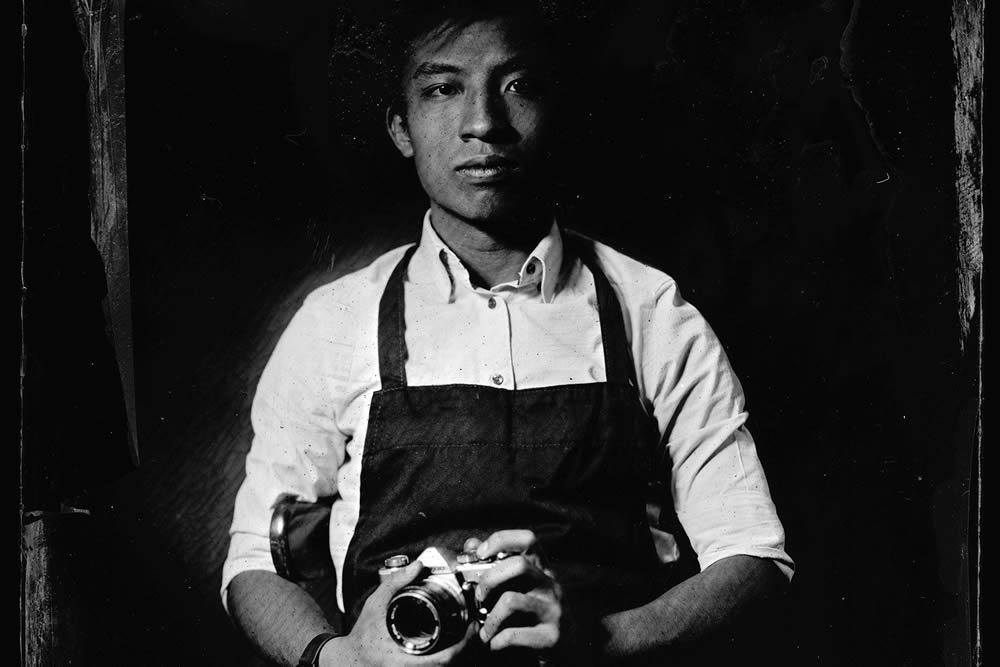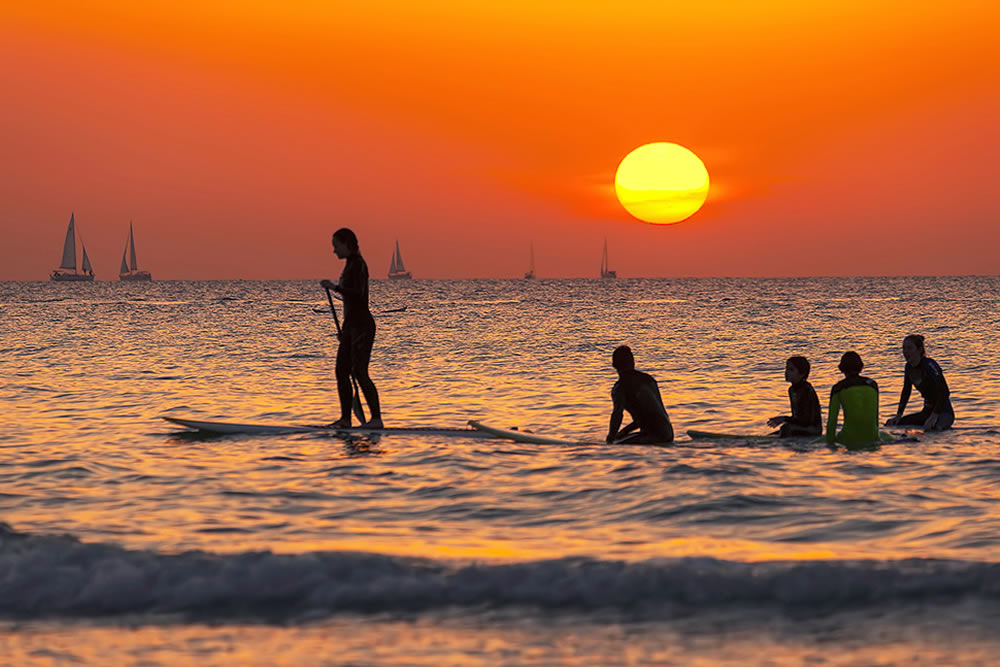One of the best street photographer interview recent times. Forrest shoots the real flavor of street photography in a unique style and it’s definitely inspiring. In this fine interview with 121clickes.com, Forrest shares some wonderful thoughts with us. Thanks for accepting our invitation. Read on…
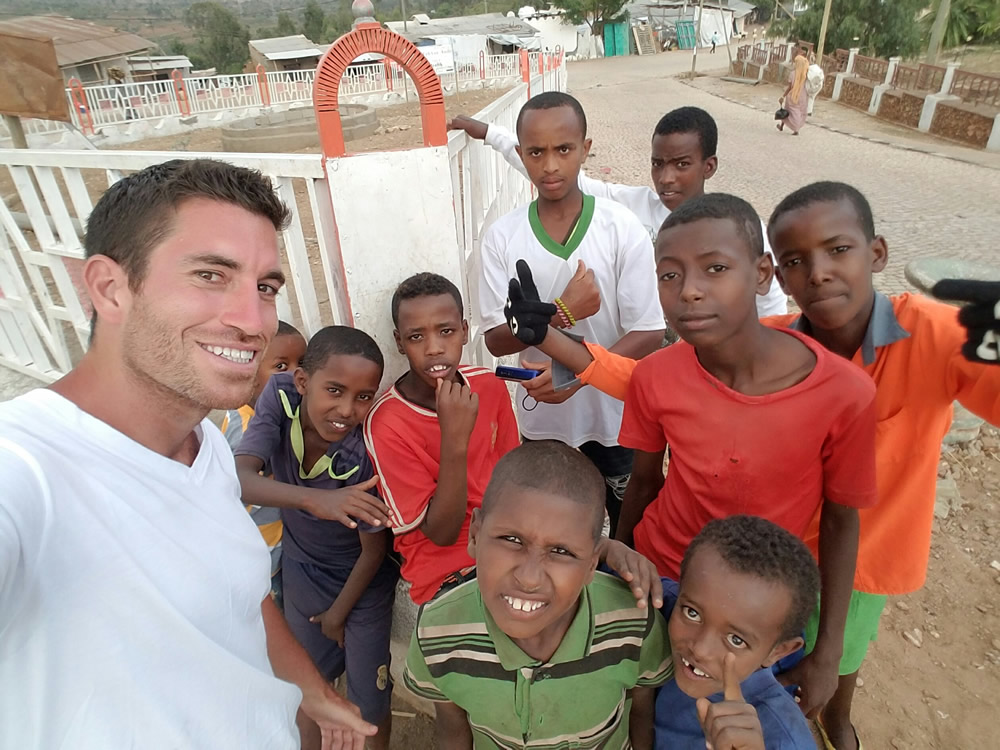
Harar, Ethiopia
Could you please Introduce yourself to our readers?
Hello, my name is Forrest Walker, but I’m also known by f.d. walker on different photography platforms. I grew up in a small city on the United States’ Oregon coast, later moved to Portland after graduating from the University of Oregon, and for the last few years, I’ve lived and worked overseas, including Istanbul and Ho Chi Minh City. Currently, I’m traveling the world over half way done photographing life in over 100 major cities for a 5 year photo project, future book, and my website, ShooterFiles.com.
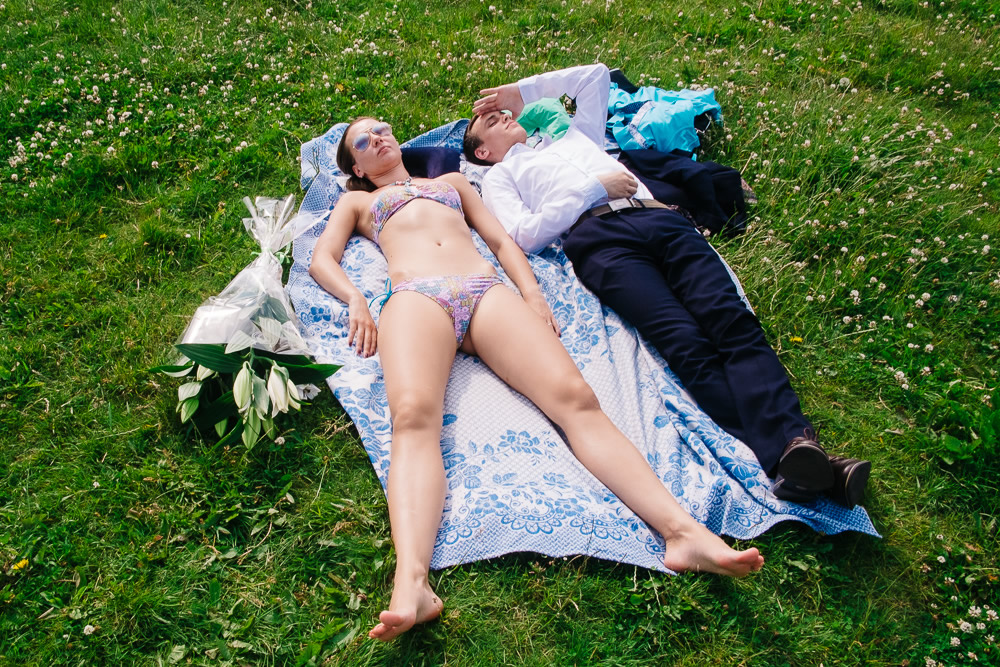
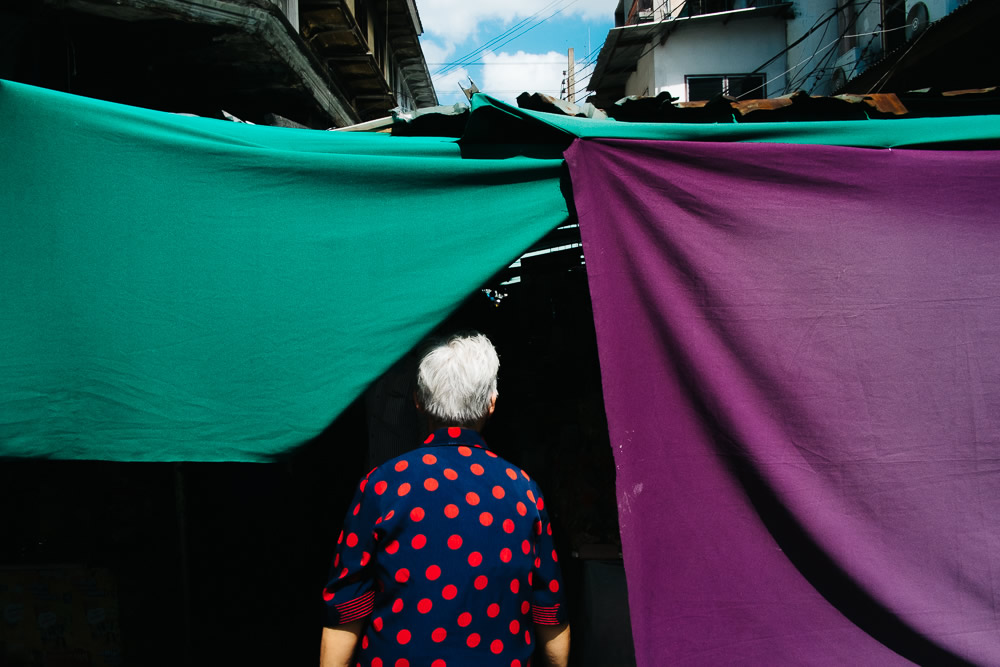
What makes Street photography so fascinating for you?
Many things, and the more I do it, the more I find out why I’m so attracted to it. It’s much more than just photography, but the aspect of freezing real life probably interests me the most. Nothing else does that and nothing else interests me more than real life. I’ve always liked to walk everywhere and I’ve always been an explorer. Curious about life, everything happening around me and discovering new things. Street photography slows things down for me, or at least gives me enough things to see and think about at once to never get bored.
Day-to-day life fascinates me more than anything because there’s so much to see there that gets ignored, but I believe it’s what makes us who we are more than anything else. It’s where you see life at its most authentic and I’m always attracted to the authentic. Candid photography is challenging, but when captured well, can’t be captured again. I like that.
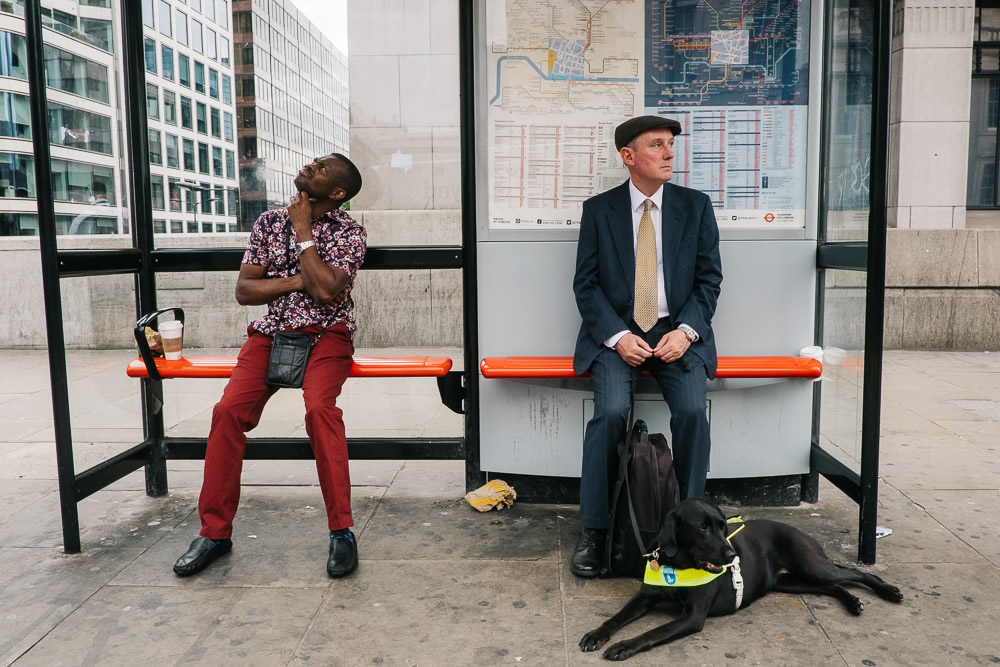
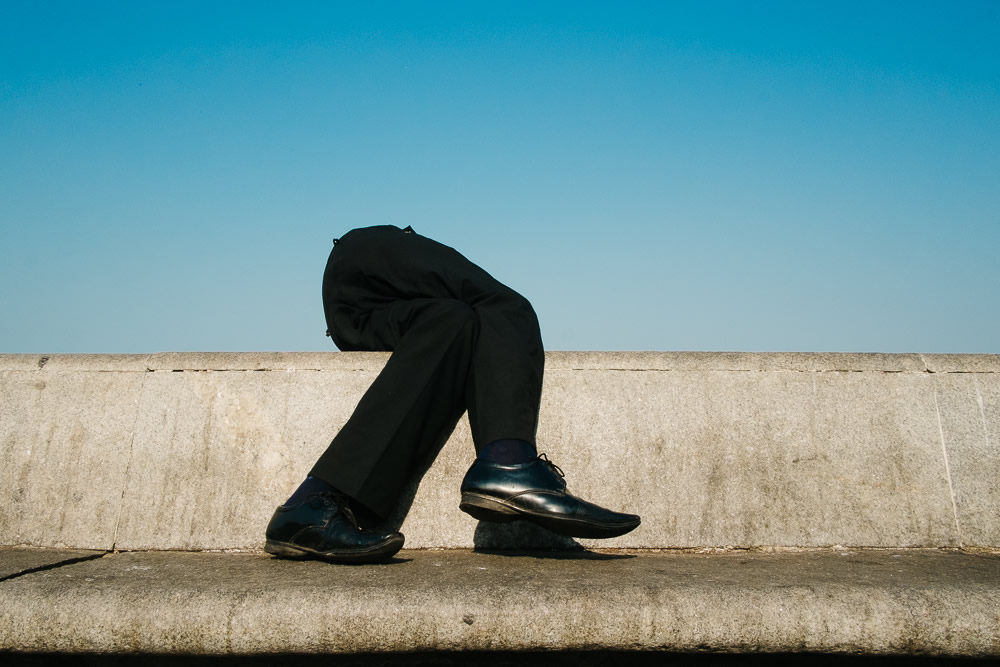
How did you train yourself to observe such beauty in the daily mundane stuff?
I already had a strong interest in the daily stuff. I’ve always found interest in people’s lives more than dramatic events. I guess I’m probably different than most when it comes to that because drama and trauma are what sells, including in photography, but not for me. It’s fringe stuff, not normal day-to-day life, and it’s usually dramatized and politicized. I feel the daily “mundane” stuff is what really makes people who they are. It’s authentic. How they live their lives every day without dramatic events to cause similar reactions and emotions. That daily stuff isn’t mundane to me, though. It’s full of variety and endless interest. It might not scream in your face, you have to look for it, but maybe that’s what I like most about it.
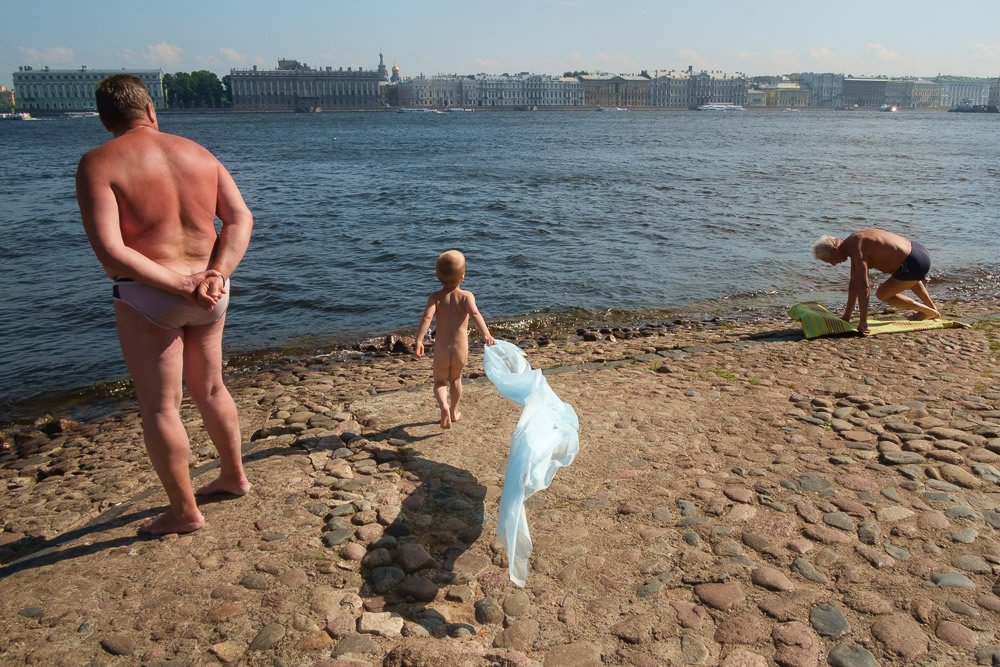
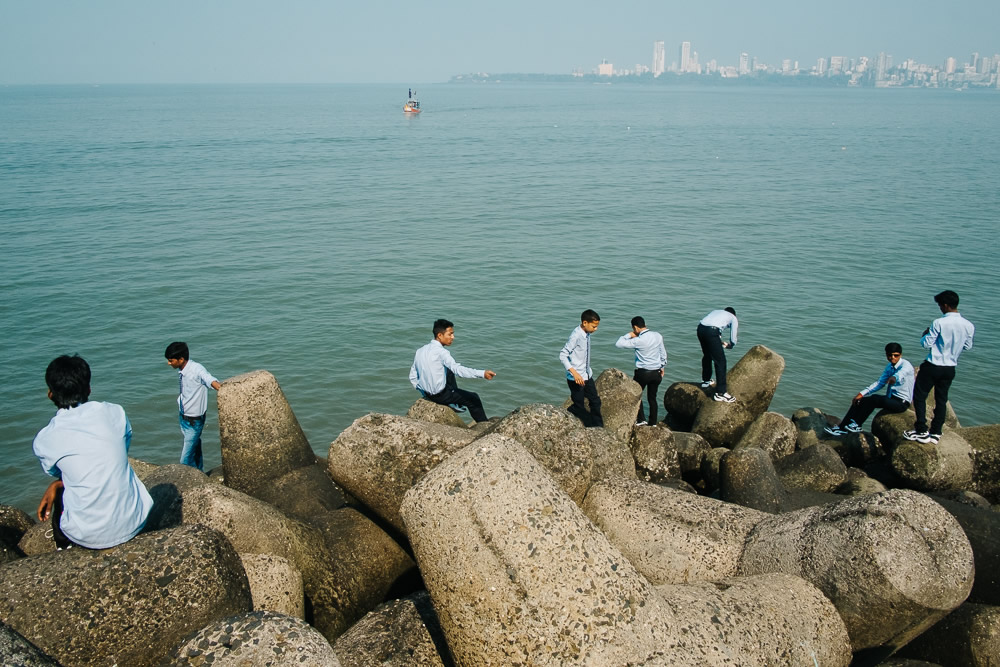
Your idea between classic and contemporary street photography?
This question could easily make for a large debate, but I’ll just give the first thoughts that come to mind. For me, when it comes to the basic term “street photography,“ it’s just a way to distinguish uncontrolled, unposed captures of life. Going deeper than that, it can go a variety of places.
With Contemporary Street, so many things have been captured in so many ways already, that I feel there’s even more push to try to capture something new and different right now. This can be a good and bad thing. Sometimes the push for new and different, tricks and styles can sacrifice depth. Capturing moments, time, place, emotion and life in an image is still photography’s greatest power, in my opinion. But things like geometry, shadow and light, juxtaposition, and illusions within daily street life are what seem to be most popular. Having a creative and sharp eye, one that sees things others might not, is what I currently see given the most important in the contemporary street. With Classic Street, I feel there’s more of a focus on life, moments, and feeling, but less on style and tricks/juxtapositions. Some of this probably comes from the fact that what we might look at as classic street photography was captured by photographers who didn’t actually think/care about the term and genre as we do now. They just wanted to capture interest, life, and emotion out of daily life. In classic street, I tend to see a closer relation to documentary compared to contemporary street.
Things change, though, and so will what’s “contemporary” street. Many trends will likely go away, but life and content won’t so I could see it swinging back that direction in the future. Saying that, while there are endless complaints about all the bad contemporary street photography flooding the internet, the truth is if you dig under all that excess, there’s probably more talent today than ever before. People are capturing some amazing work today and sometimes we’re more critical on the new stuff than we would be on the old.
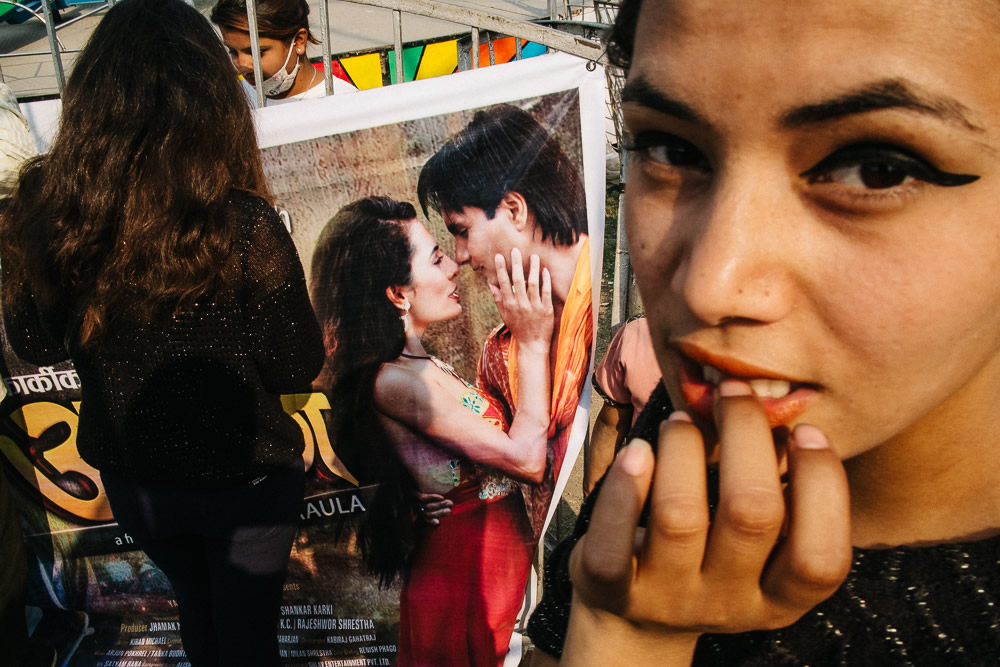
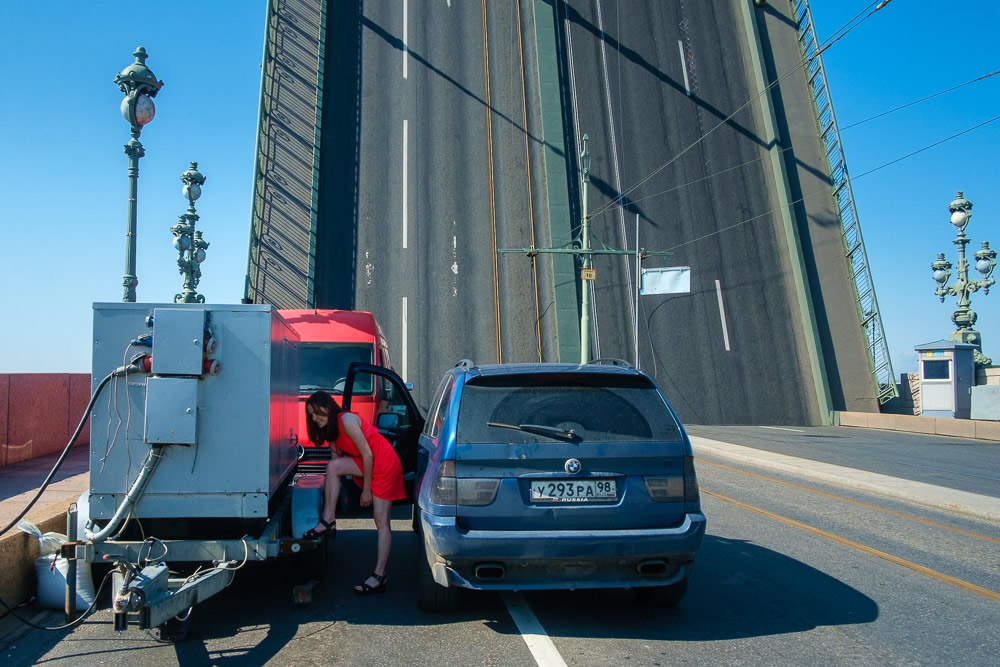
According to Forrest, what makes a good picture?
Many things, but it has to have a strong interest at its core, which can come in a variety of forms. Something that makes the viewer want to keep looking. I enjoy a wide variety of vision, content, and styles, but there has to be something that grabs me and keeps me there. After that, things like lighting, color, contrast, composition, etc can help complete the scene. For me, a strong presence of life is the most important, though, while many other things, including aesthetics, can add to it and make it great. Seeing something new, captured in a different way, or with a unique vision can make it good too. I don’t want to see something I’ve seen before or see every day, and I especially don’t want to see something you could go back to tomorrow and capture again. Make it special.
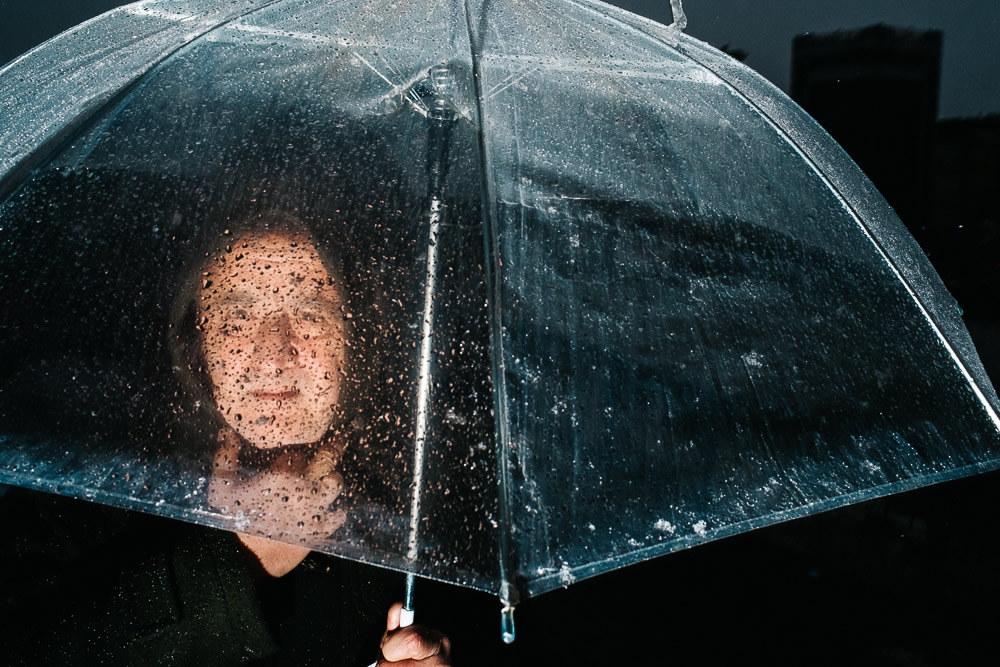
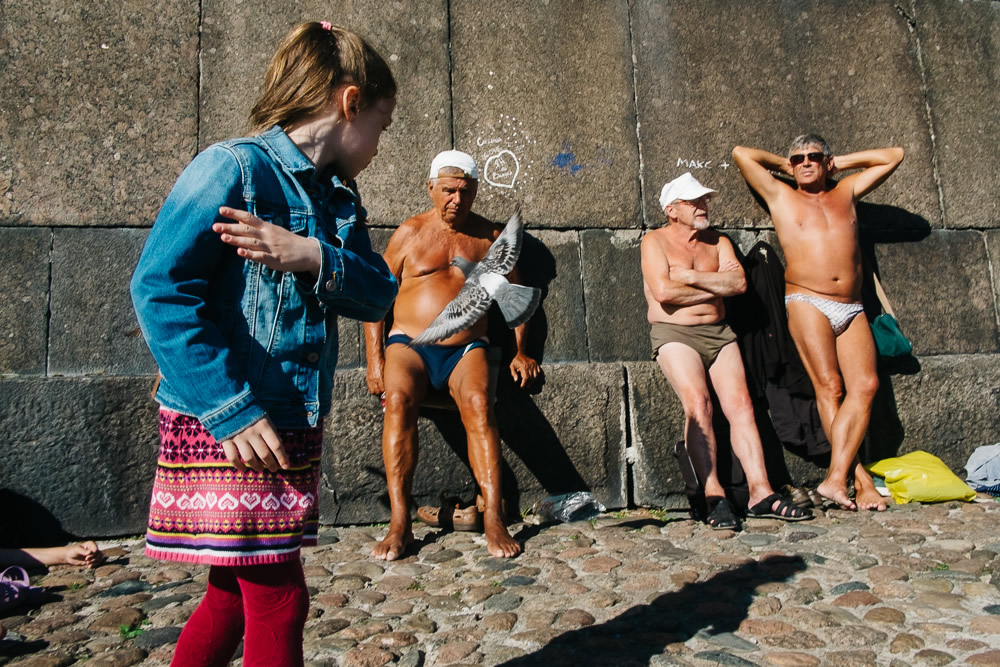
How to get rid of fear on streets?
Like with most things, just do it. You have to decide I’m going to ignore fear and focus on the photography. Like being afraid of the water, you just have to jump in and then you won’t be as afraid anymore. You find out quickly that bad reactions are very rare, anyway. It also helps to learn how to read situations and be confident and comfortable with people, especially with your street photography and what you’re doing.
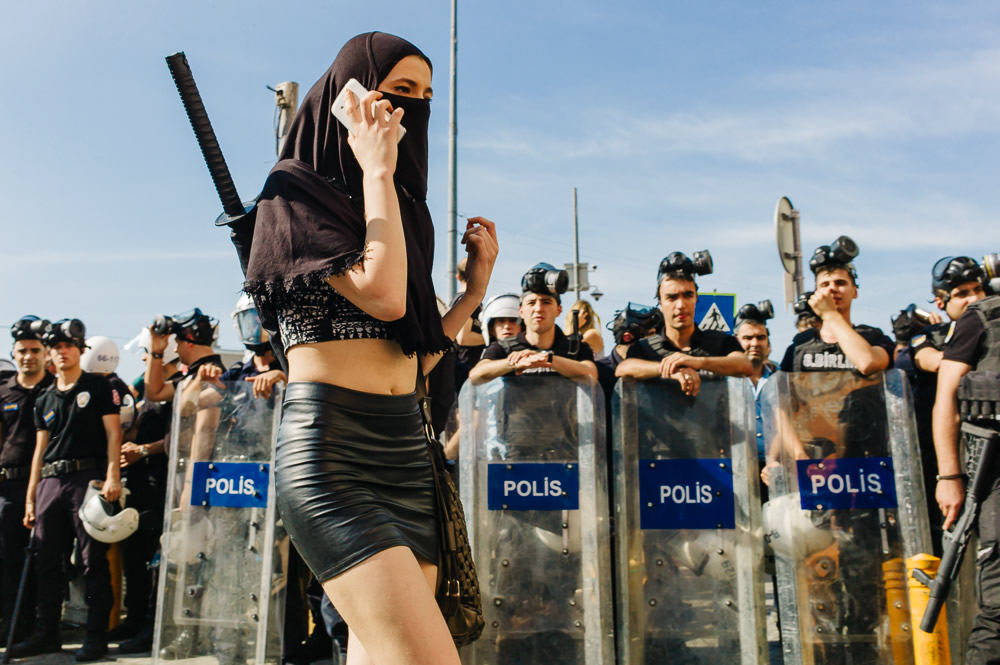
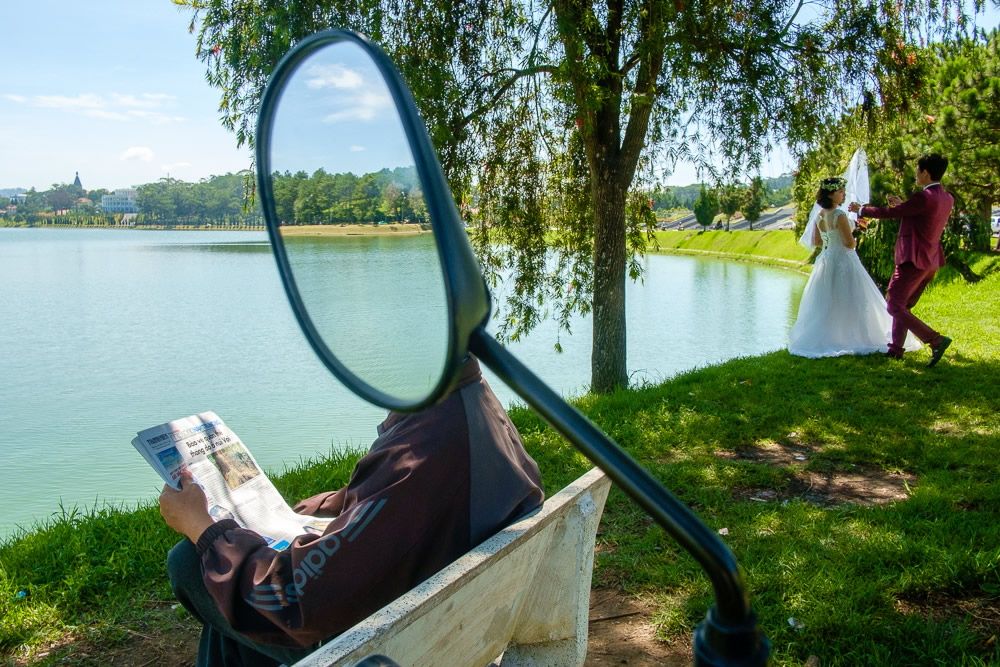
How do you avoid shooting cliche Street photographs?
Attempt to approach life and places in the same way, but with fresh eyes. Cliche comes from what we’ve already seen putting itself into the photo. We’ve seen hundreds of photos of cigars and old cars in Havana so people picture this before even taking a photo and then you get a bunch of photos that look the same because they’re looking from the same playbook. By approaching a place with your own eyes, you’re less likely to get cliche photos because you’re only playing by your personal playbook. So I try to trust my instincts and feeling.
At the same time, I don’t want to be so afraid of the cliche that it affects my photos. Those old cars in Havana are photogenic, that’s why they became cliche. If including them in a photo helps the photo, then include it, don’t avoid it.
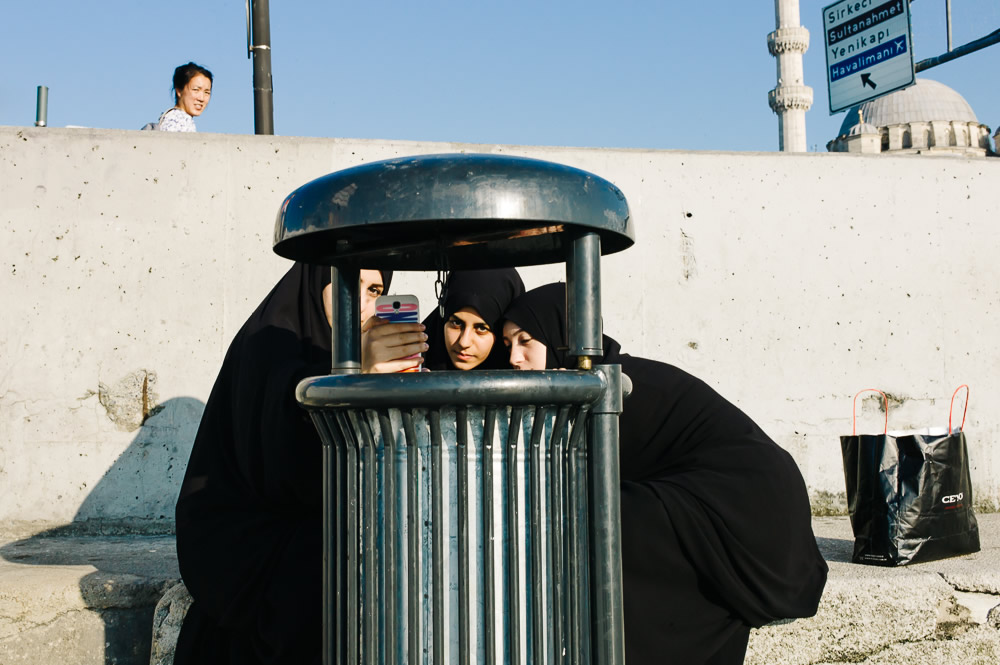
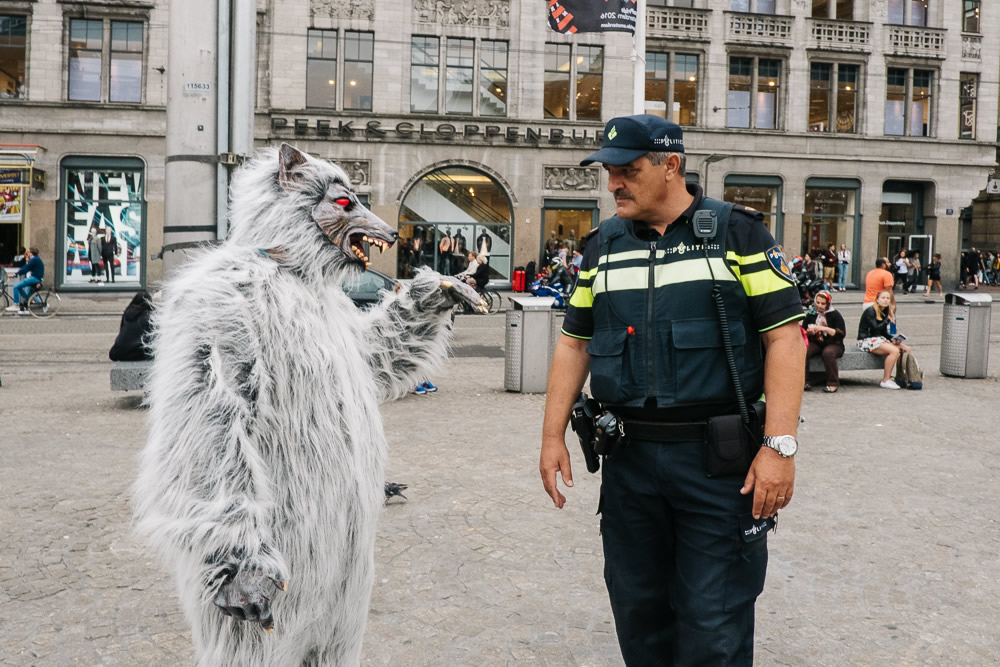
Few words about your blog ShooterFiles?
I started it towards the beginning of 2015, shortly before I began my 100 major city project (“Big City, Small World”). I wanted to do something more than just photography that hadn’t been done and might help others. It came about for a few reasons, one of which was how little info is available for street photography in specific cities around the world, although forums are filled with people asking for it. Another reason was to help connect the international community in any way I could, while also connecting eyes to cities and candid life around the world. Many major cities still haven’t been photographed much. And most importantly, I was already committing to something big and unique in the project so I thought it would be a waste to not share that in today’s age.
I take my blog around the world with me through everything I do photographically, with a goal of exploring and photographing life in over 100 major cities across 6 continents and most regions. The largest time-consuming thing I do is create in-depth street photography guides for most of the cities I photograph, but I also write other city and street photography related posts, share personal photos and stories, interview some of the most talented local street photographers from the cities I visit, provide tips and anything else I can think of that might be helpful or interesting for readers. I have plans to add more features and evolve it even more, but it already keeps me plenty busy outside of my photography schedule.
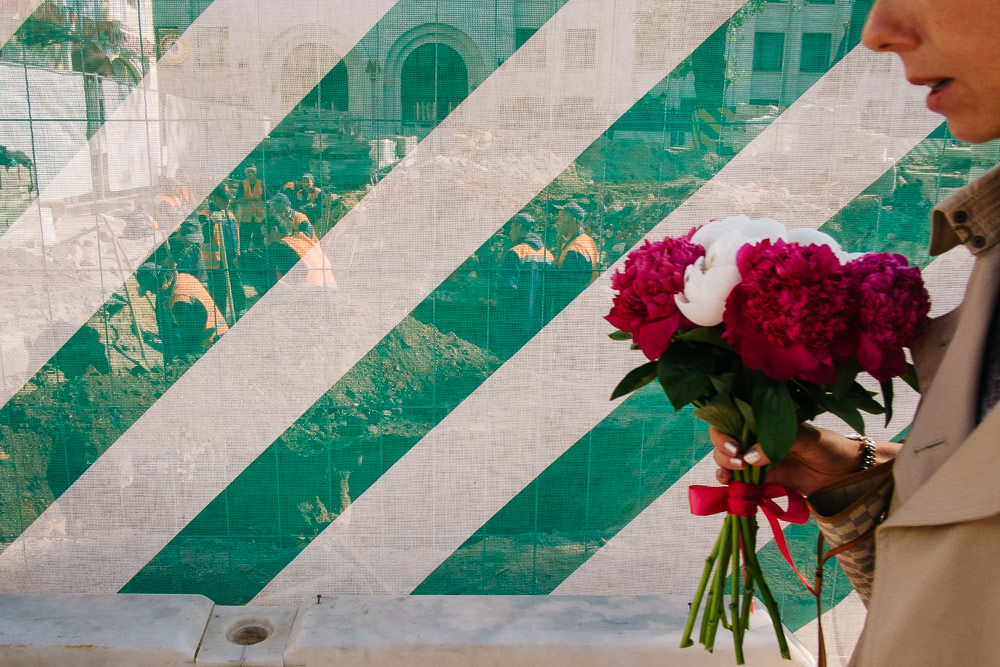
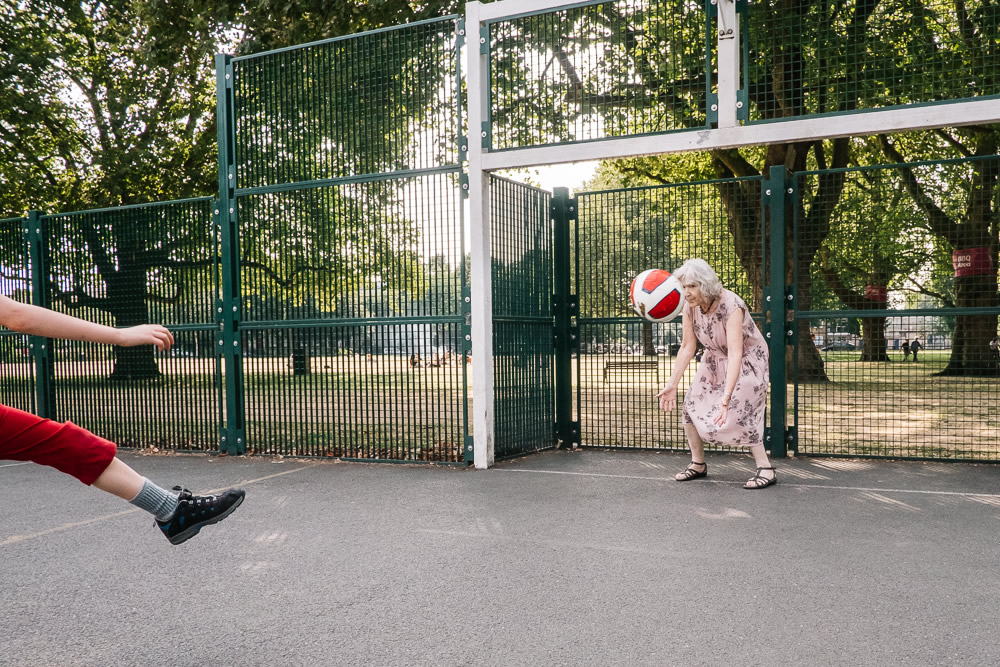
You are conducting workshops and sharing your knowledge other aspiring photographers. Few words about that?
Yes, I’ve started doing a few workshops this year and plan on focusing more on them next year. I’ve also started giving talks to other photographers during my travels. When I set out on this project and the blog, part of it was to reach out to others around the world too, and to pass on anything I can from my experiences. The workshops have a focus on street photography and also getting to know the city and life through street photography and venturing to a larger variety of areas within the cities. As I’ve already explored all of the cities extensively and have learned from exploring so many different cities, it helps add to the experience. My next workshop is one I’m really looking forward to because it’s one full week in my favorite city for street photography: Havana, Cuba.
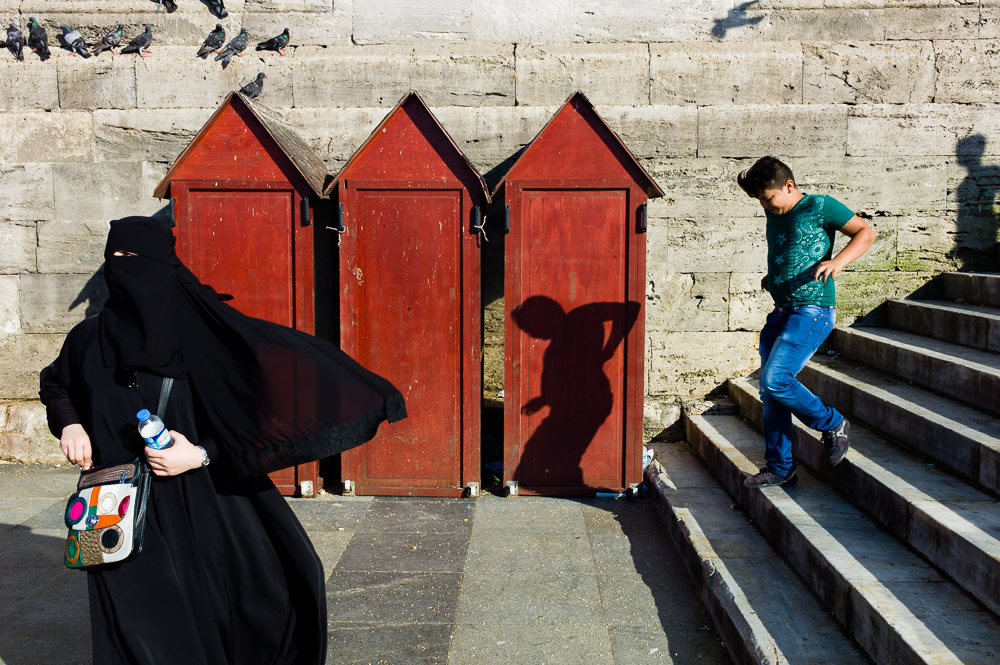
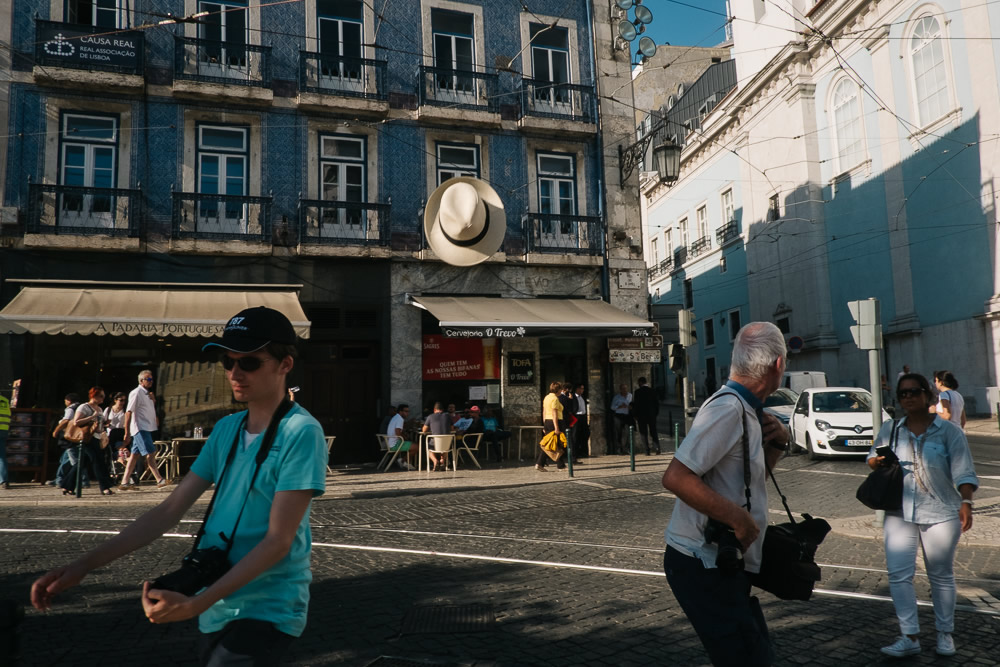
Would you mind sharing us your future goals and ambition?
My main current and future goal is my 100 major city project, which will take another 1-2 years to complete, followed by a book (tentatively titled “Big City, Small World”). Soon, though, I’ll also be releasing a paperback book/zine titled “Oddyssey” (spelling is intentional :). The blog is full of goals as I continually try to improve and expand it. I want it to be a one-of-a-kind resource for photographers visiting new cities, but I also eventually want to expand it more for other street photographers internationally. Workshops will become more of a focus too, as I touched on in the last question. I left my old life and everything behind so I could jump into this life, not just to do what I loved, but also with purpose. So there are some avenues that I hope my blog can create for other related goals and ambition in the future too. But long term, I just hope to put together a body of work that I’m proud of that others might enjoy into the future, while also helping others along the way. And maybe open a little hostel and beach bar on some remote island. With a direct metro line to the city for street photography, of course. I can dream.
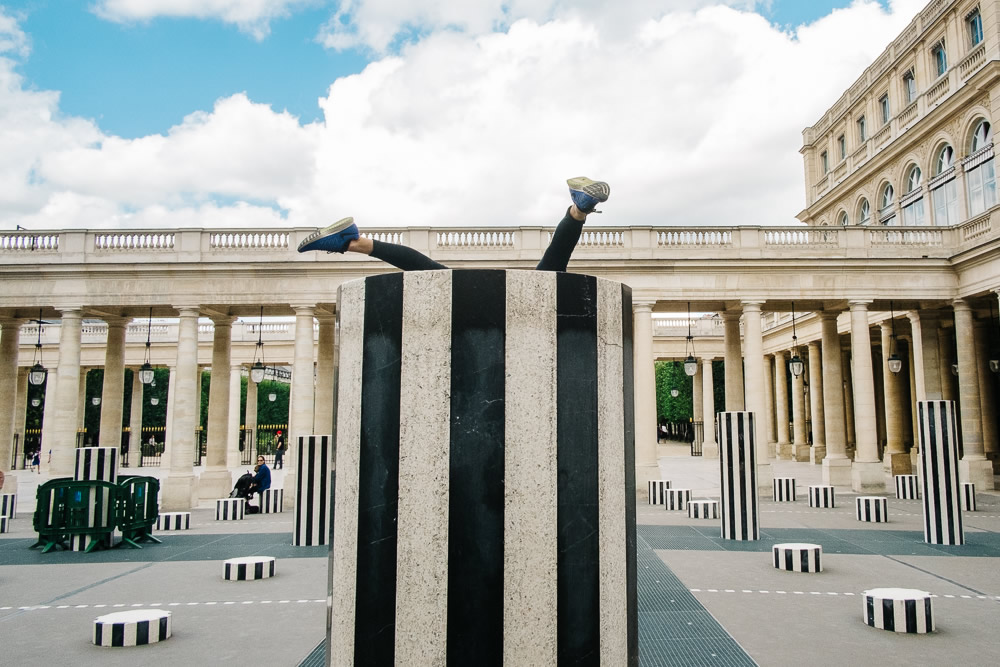
What’s your personal motto?
I’ve never really thought about a specific personal motto, but I always liked a line in one of my favorite movies, Shawshank Redemption. “Get busy living or get busy dying.” That could work.
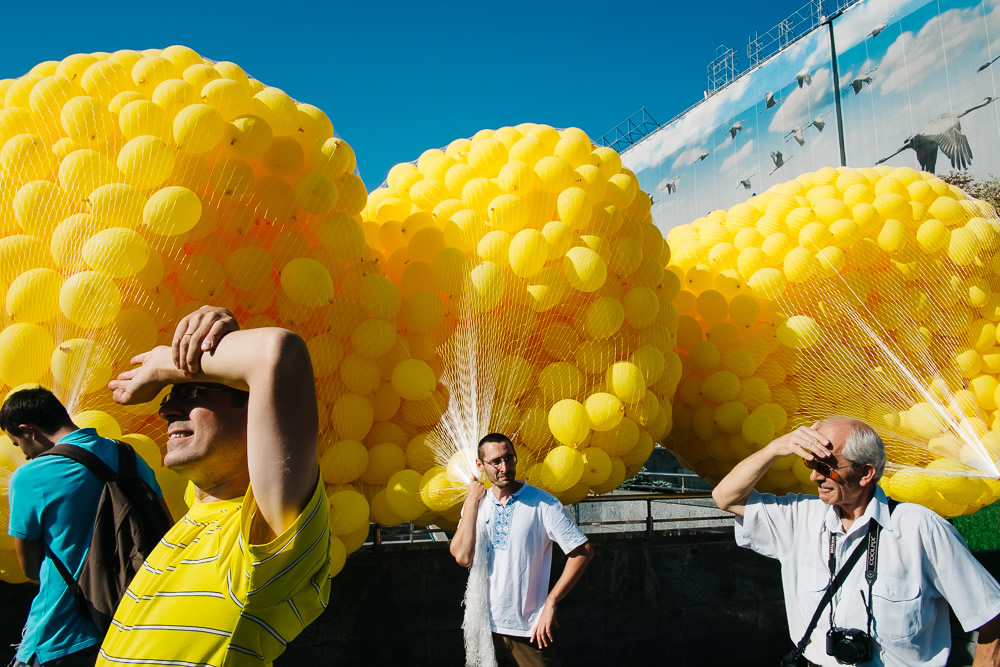
Who is your real life heroes?
Anyone doing something different, while striving to do something special. Not a follower, but doesn’t have to be a leader, either. Moves to their own beat, but genuinely and with some ambition to it. Dreamers that make things a reality.
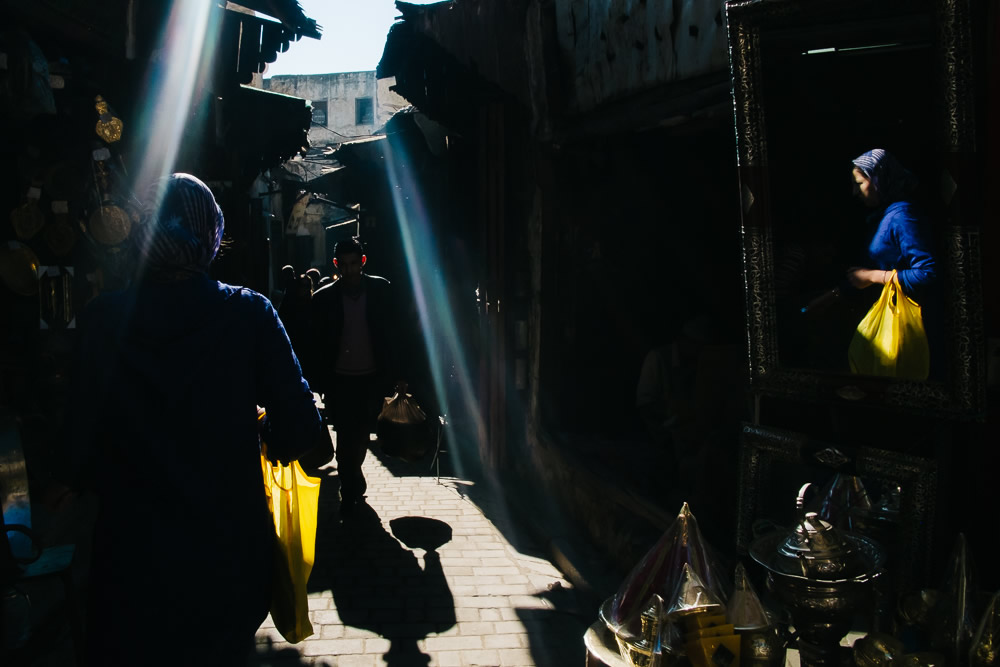
Your favorite photographers?
Too many, but here’s some, in no particular order: Alex Webb, Harry Gruyaert, Josef Koudelka, Helen Levitt, Richard Kalvar, Tony Ray-Jones, Constantine Manos, Gueorgui Pinkhassov, and much more.
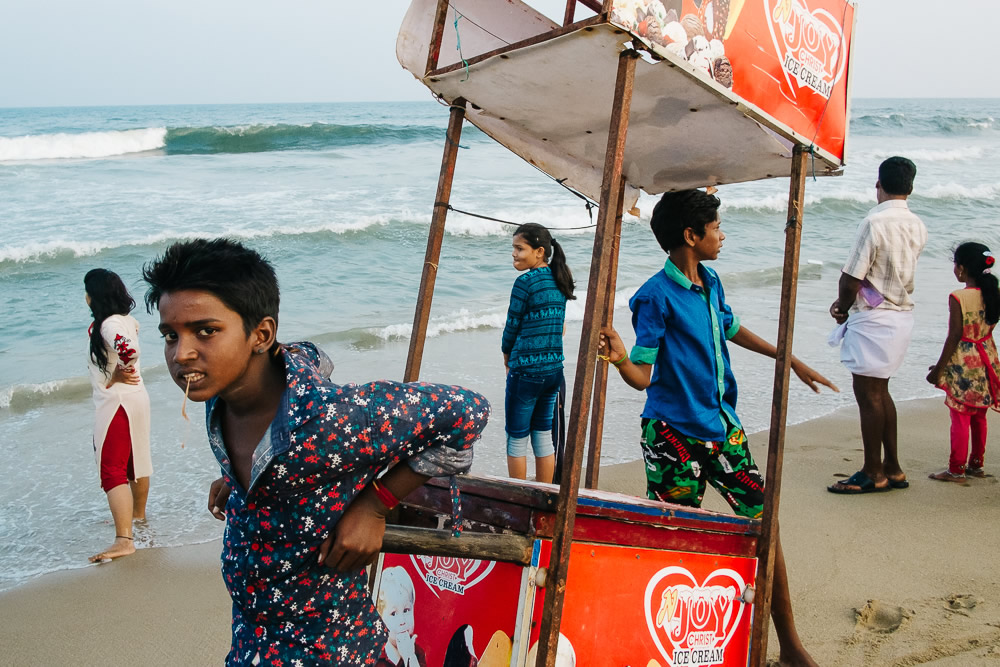
Your favorite photography books?
- The Suffering of Light – Alex Webb
- Earthlings – Richard Kalvar
- Gypsies – Josef Koudelka
- The Last Resort – Martin Parr
- A Day Off – Tony Ray-Jones
- Wonderland: A Fairytale of the Soviet Monolith – Jason Eskenazi
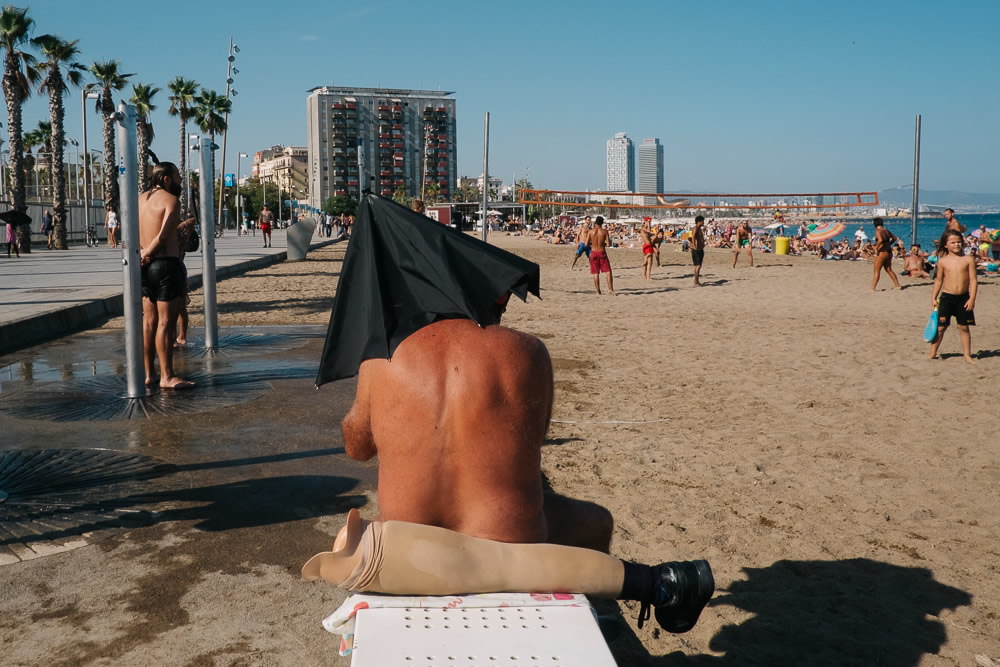
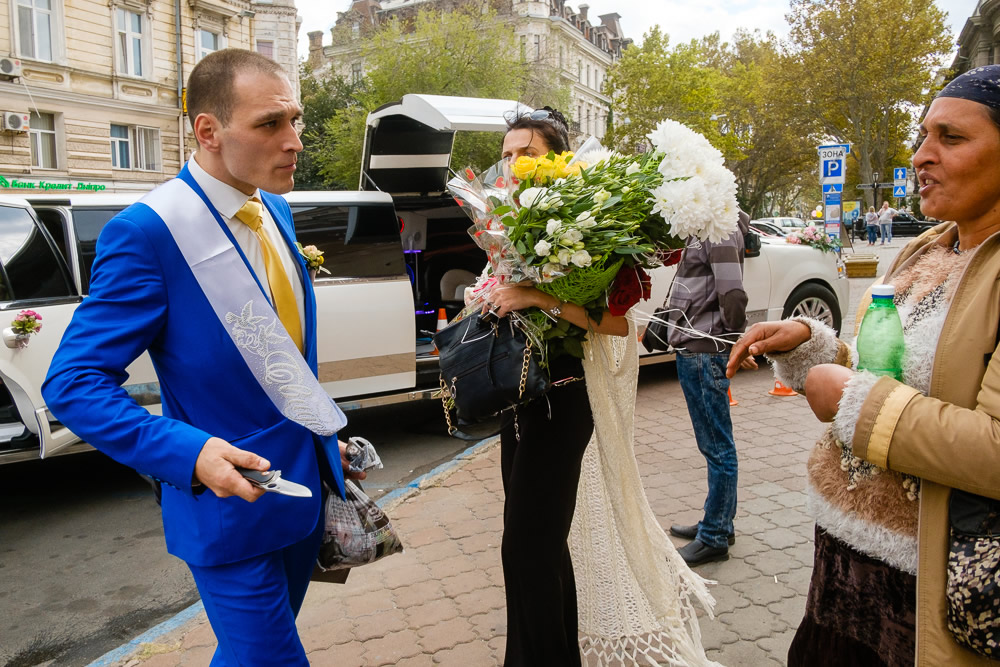
Apart from photography tell me about your hobbies and interests?
Obviously, travel is a big interest of mine. The exploring part of it is what I enjoy most. I love being outside, but not just in the streets. I grew up in Oregon and love being in nature too, hiking, floating the river, or relaxing at the beach. Like basically everybody on the planet, music is a big interest too. As much as I love photography, music is still the greatest form of expression to me. Unfortunately, I can’t sing, but I grew up on blues and blues-influenced music, from the raw, original blues to Motown to rock. From there, I got into Hip Hop from an early age, but also listen to RnB, Blues/Folk and some rock and latin.
Honestly, my interests are endless. It’s a problem, especially with the internet, but I love learning anything new. I like to collect a few things too. I have a small collection of vinyl records, a huge collection of beer bottle caps from all of my travels (800+ different caps and counting, on their way to the greatest future home bar counter ever assembled), and not surprisingly, plenty of photo books.
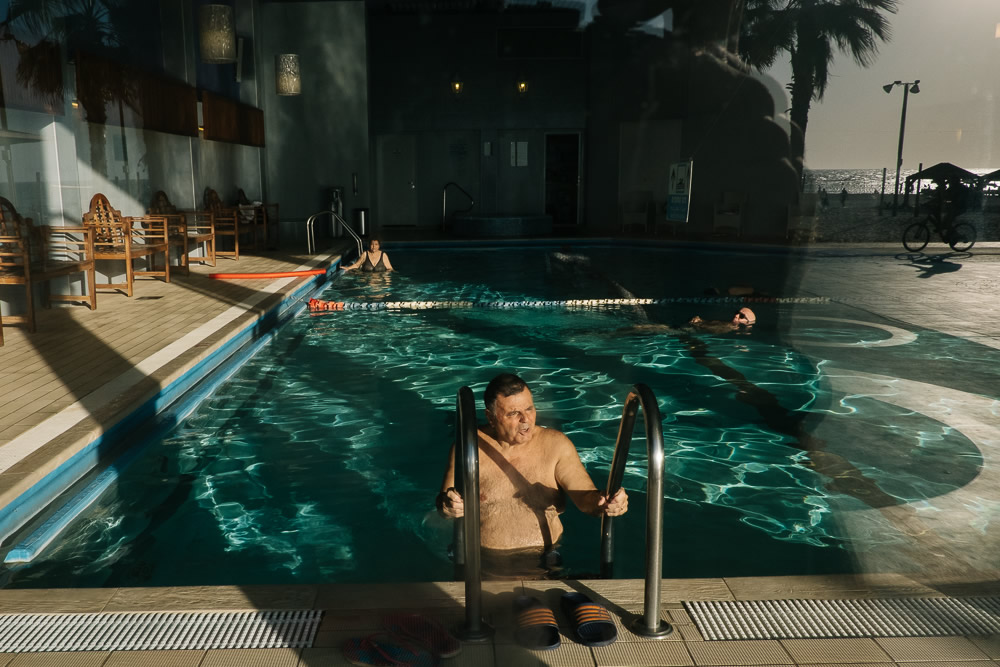
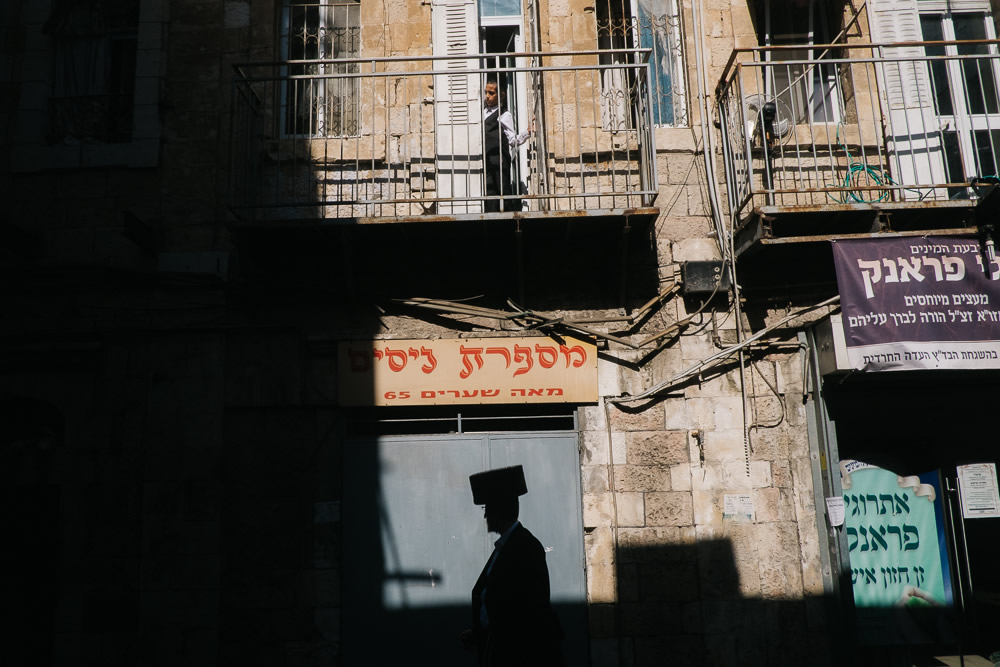
Your advice for our readers and aspiring talents?
Always strive to get better and know there’s always somewhere better to go. Follow your own vision, but look at great work to see what great work looks like. Like with most things, if it’s more than just an enjoyable hobby and being good is important to you, you have to be obsessive. Obsession comes with sacrifice, but the obsessed are always the ones that stand apart from the rest.
A favorite quote of mine from Charles Bukowski:
“If you’re going to try, go all the way. Otherwise, don’t even start. This could mean losing girlfriends, wives, relatives and maybe even your mind. It could mean not eating for three or four days. It could mean freezing on a park bench. It could mean jail. It could mean derision. It could mean mockery–isolation. Isolation is the gift. All the others are a test of your endurance, of how much you really want to do it. And, you’ll do it, despite rejection and the worst odds. And it will be better than anything else you can imagine. If you’re going to try, go all the way. There is no other feeling like that. You will be alone with the gods, and the nights will flame with fire. You will ride life straight to perfect laughter. It’s the only good fight there is.”
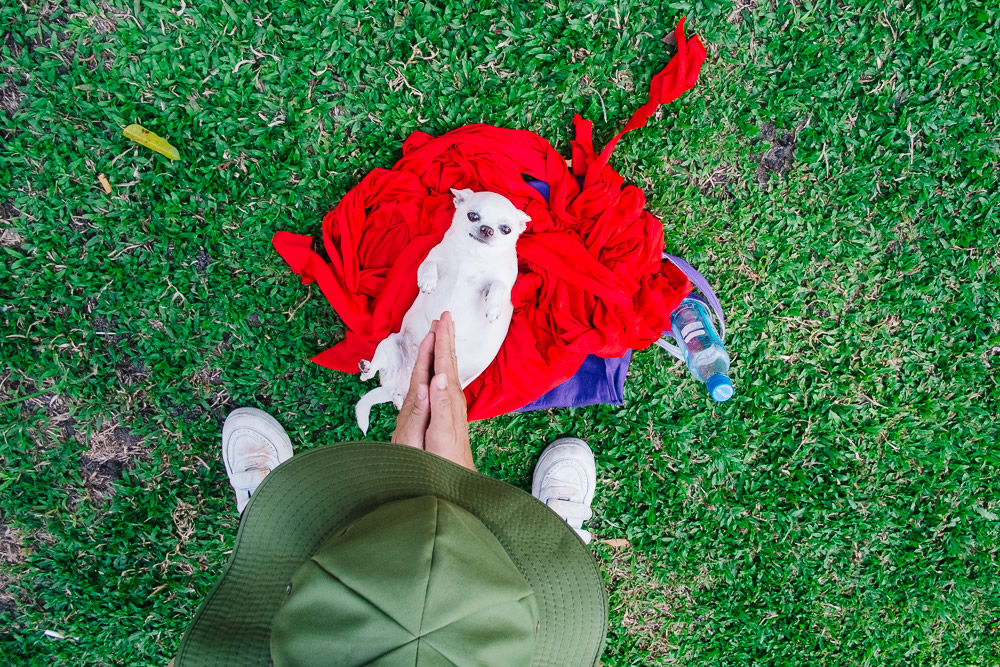
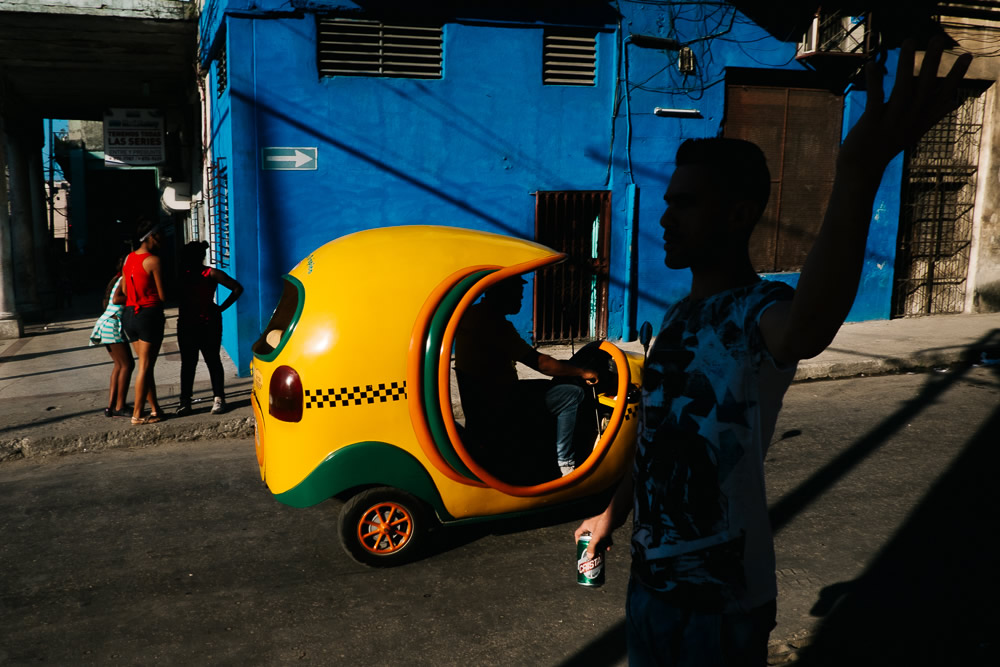
Any tips for aspiring street photographers out there?
The ABC’s. Always Be Comfortable, Curious and Confident. Make sure you’re relaxed and comfortable, no distractions. Explore and observe everything around you. And take the shot when you feel it, don’t worry or hesitate. But more than anything, get out and shoot. As much as you can.
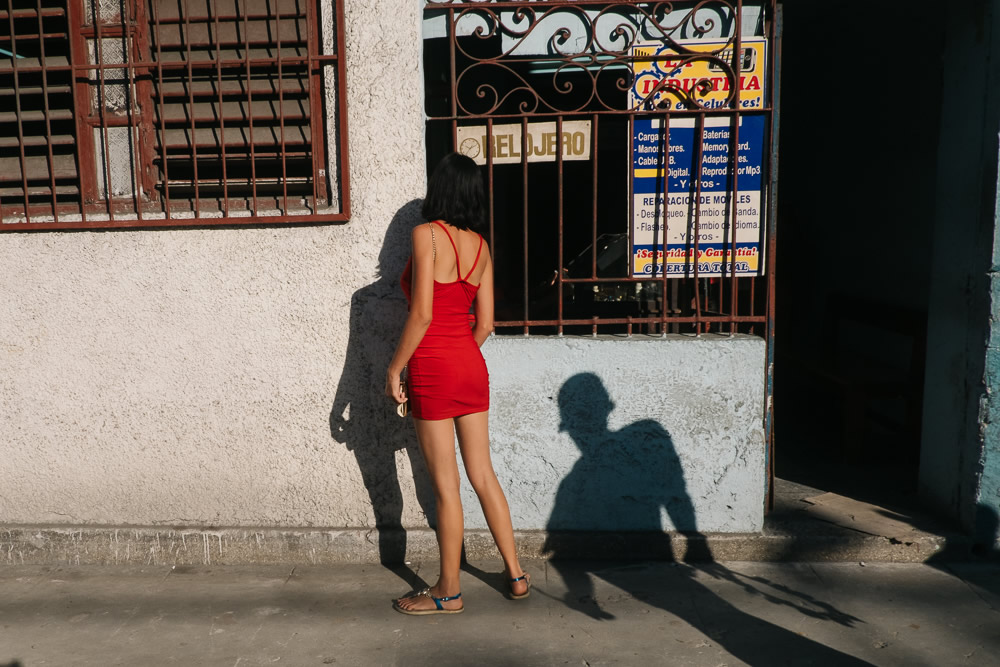
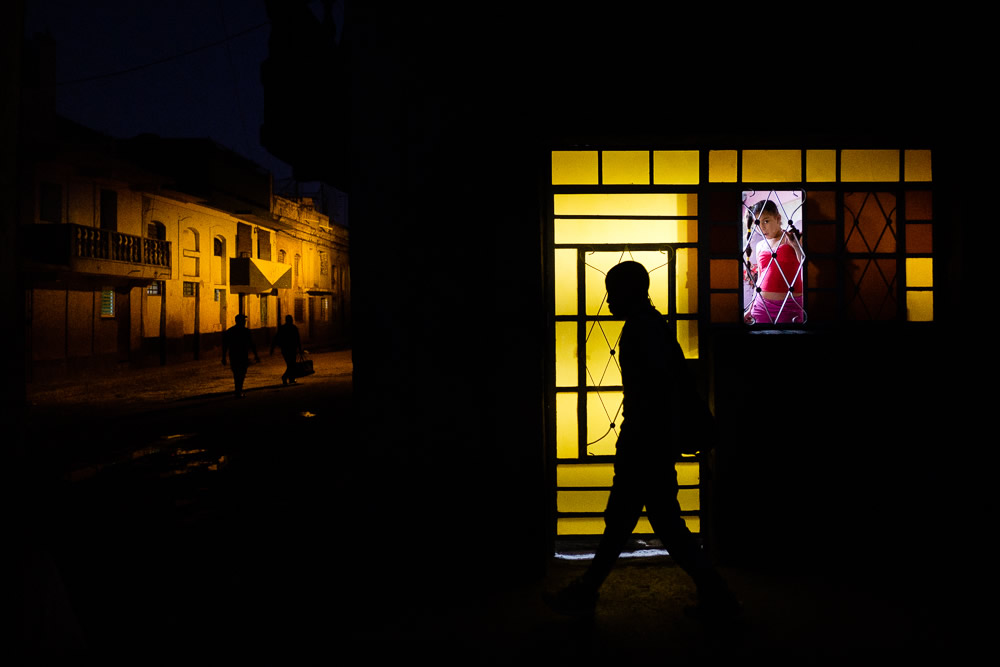
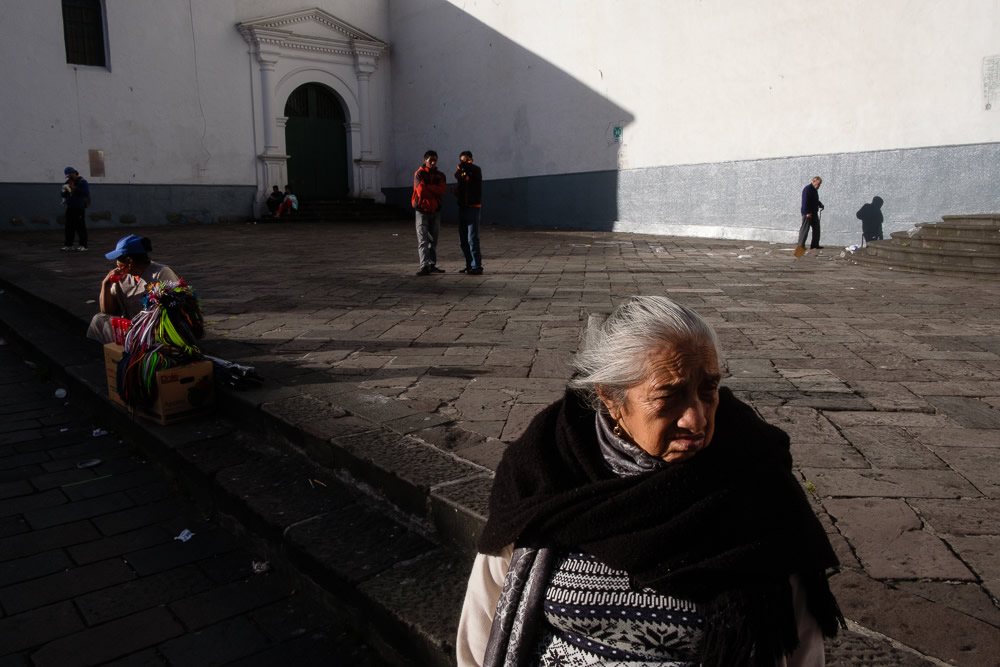
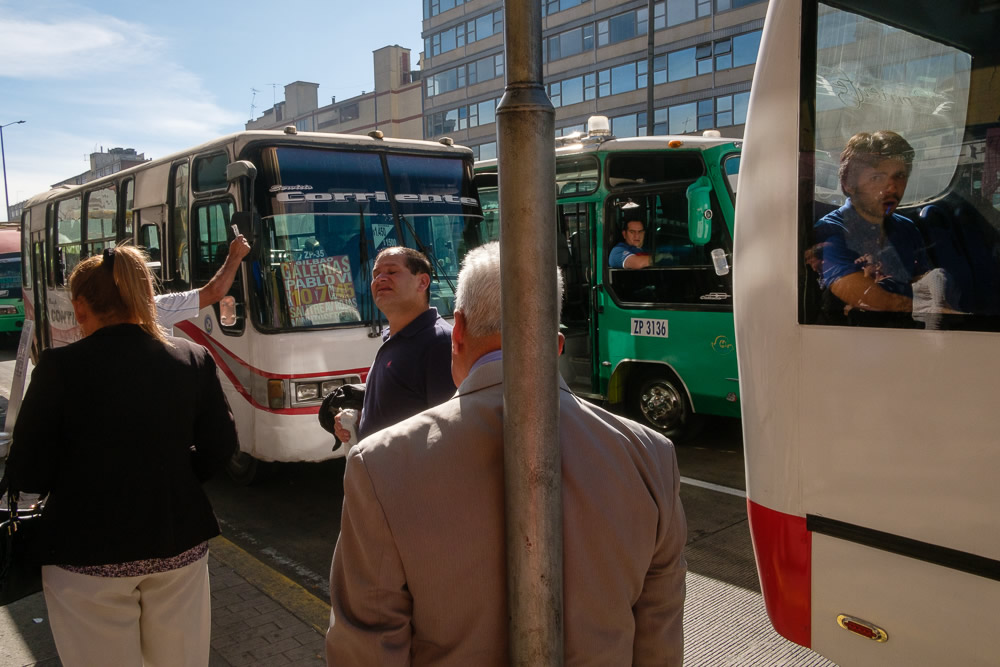
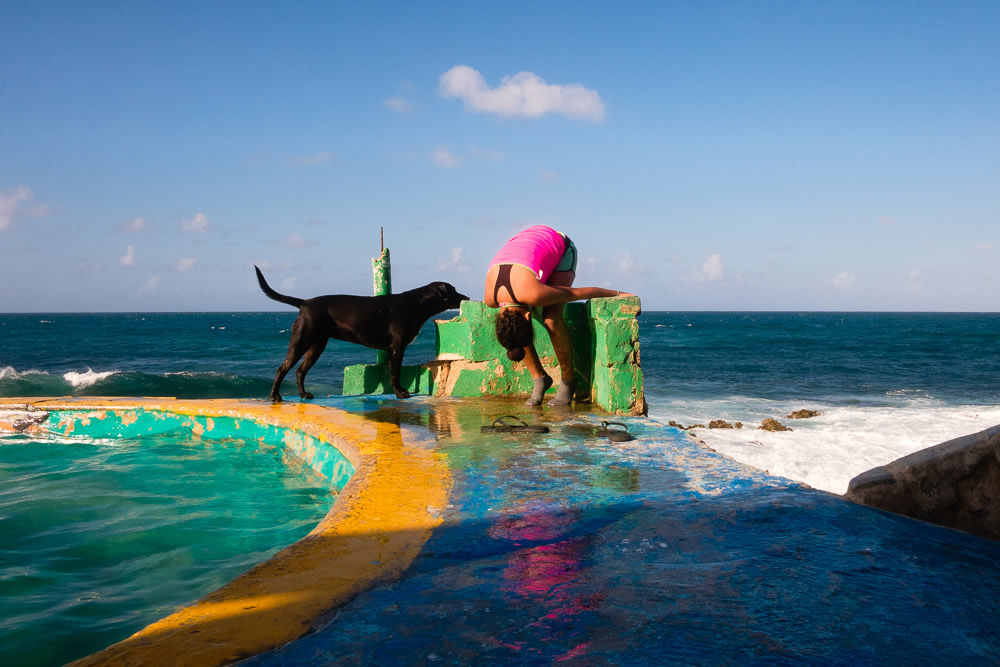
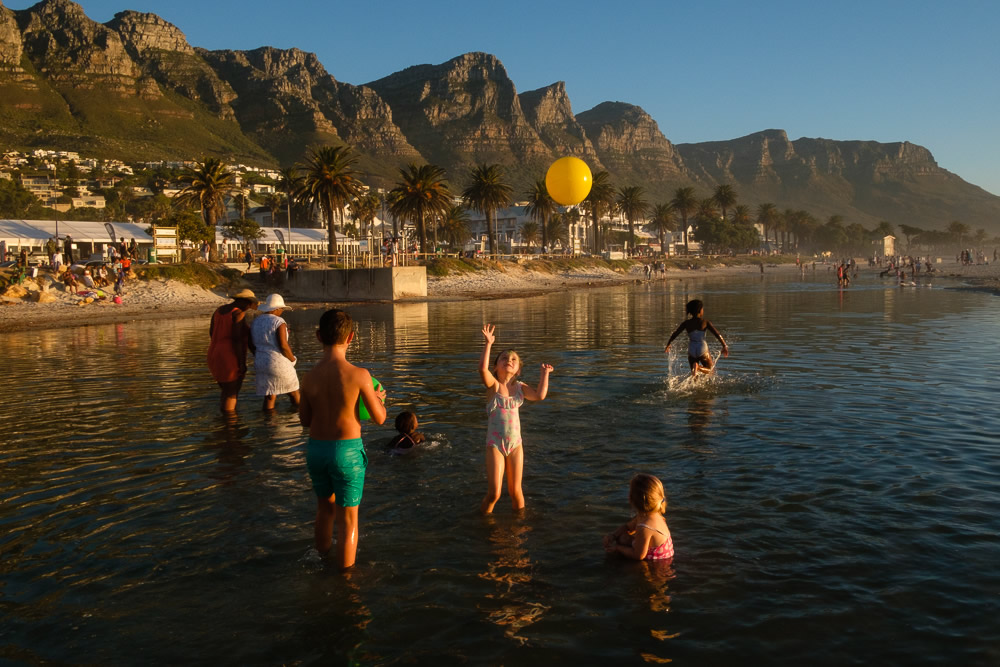
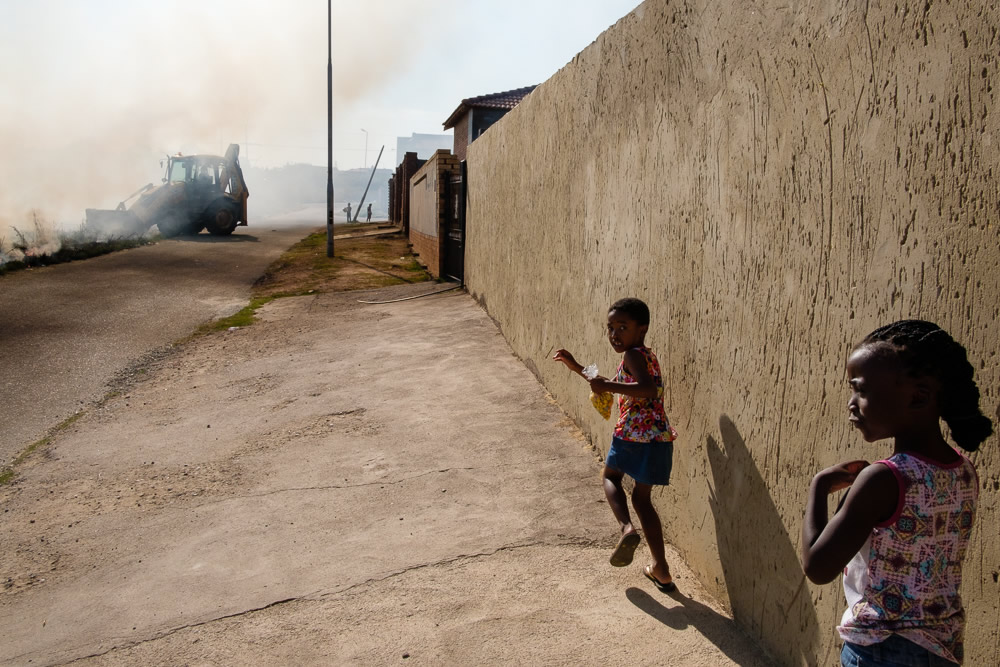
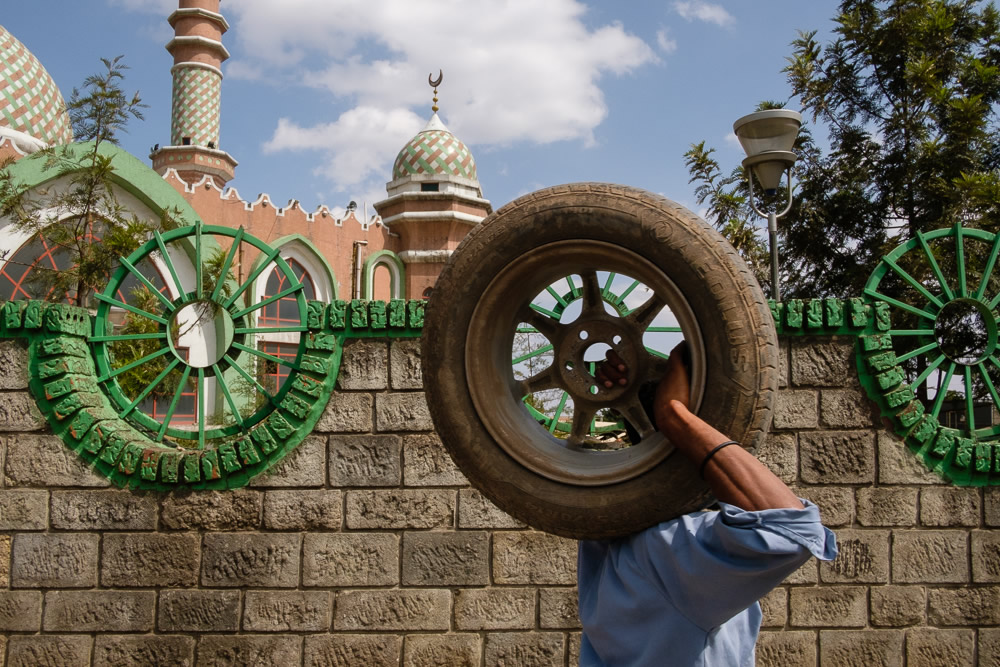
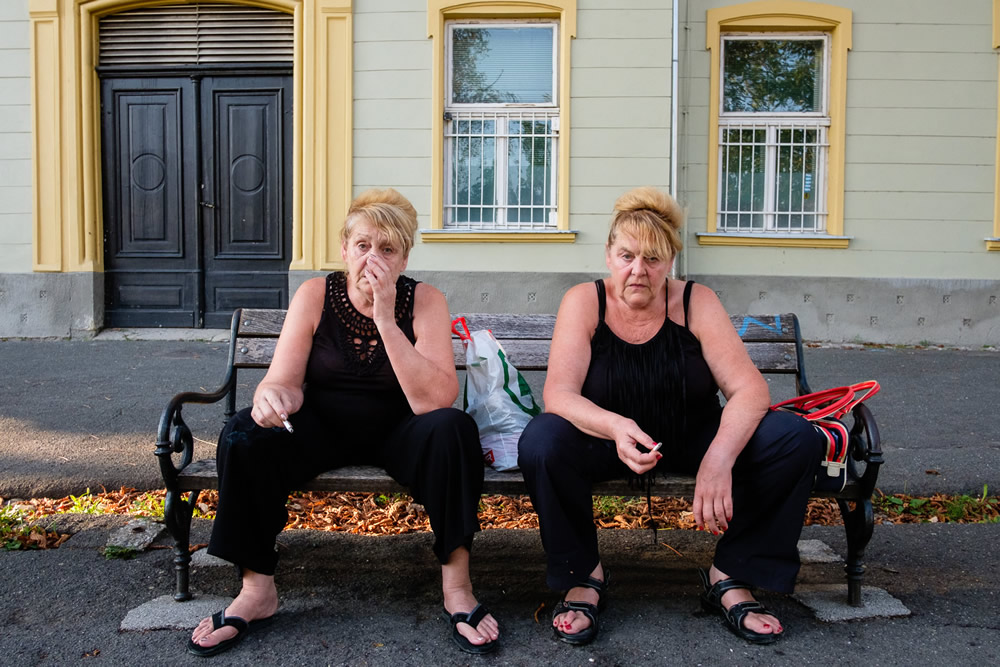
You can find Forrest Walker on the Web:
Copyrights:
All the pictures in this post are copyrighted Forrest Walker. Their reproduction, even in part, is forbidden without the explicit approval of the rightful owners.



